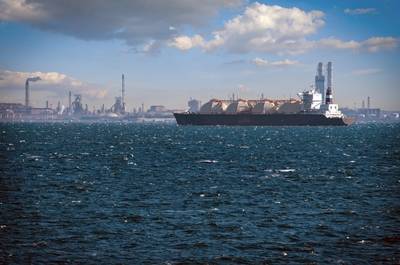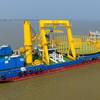LNG Demand in Asia to Slow Down Next Year
Liquefied natural gas (LNG) demand growth in Asia will slow down next year as the economic recovery stagnates and the capacity of competing fuels nuclear and coal expand in Japan and South Korea, research consultancy Wood Mackenzie said on Thursday.
LNG demand in Asia is expected to rise by 12 million tonnes per annum (mmtpa) in 2022, down from the 19 mmtpa growth in 2021, Robert Sims, head of Woodmac's LNG short-term, gas and LNG research, said in a note.
"LNG demand growth in Asia will slow down as the economic recovery decelerates, coal and nuclear capacity will increase in Japan and South Korea and more offshore domestic supply will be available in India," he added.
At the same time, global LNG supply will grow by 18 mmtpa because of new supply from the Sabine Pass Train 6 and Calcasieu Pass projects in the United States and Indonesia's Tangguh Train 3, he said. This will mean that there will be about 6 to 7 mmtpa of more LNG available for Europe, which will be 9% more than in 2021.
Still, the key to shaping market dynamics in Europe next year will be the ramp up of the Nord Stream 2 pipeline, with capacity of 55 billion cubic metres per year, from Russia to Germany, Sims said, adding that it is expected to be commissioned this winter.
"Prices might soften in 2022, but market fundamentals point towards a further tightening of the global LNG market through to 2025," he said.
"With LNG demand in Asia continuing to increase and global LNG supply growth set to slow down, competition for Atlantic LNG will intensify, reducing LNG availability to Europe."
For this year, Wood Mackenzie expects demand for restocking and strong coal-to-gas switching economics to support European gas prices through the summer despite global LNG supply expected to increase by 16 mmtpa in the summer, compared with the same period last year.
"Winter will see market dynamics getting increasingly tighter," Sims said.
"Lower winter starting inventory in Europe, combined with high seasonal Asian demand, will result in increased competition for Atlantic LNG, including from the U.S., putting pressure on LNG prices".
(Reporting by Jessica Jaganathan; Editing by Christian Schmollinger)







